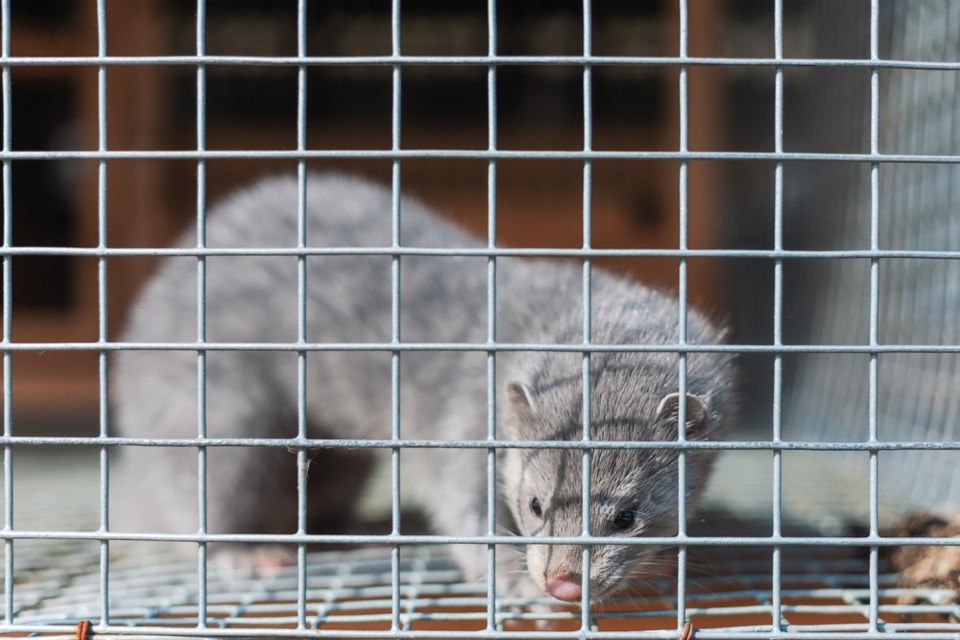Five minks on a Fraser Valley farm have tested positive for the virus that causes COVID-19.
The positive cases in the farm’s animals come two days after several workers tested positive for the virus.
“The results were expected, considering the interaction between infected workers and mink on the farm. Testing to determine genome sequencing and the strain of the virus continues,” wrote a spokesperson for the province’s Ministry of Agriculture, Food and Fisheries in a press release.
Those results are expected in the coming weeks. In a press conference Wednesday, provincial health officer Dr. Bonnie Henry said the outbreak is "something we're watching very closely," adding the full genome sequencing will help health officials understand if and how the virus changes.
In the meantime, the farm remains under quarantine and a plan is in place to care for the mink during the course of the outbreak. However, the outbreak is “not considered to pose a health risk to other mink farms,” wrote the ministry spokesperson.
The farm was last inspected by the province’s chief veterinarian in September, and at the time, was found to be in compliance with animal welfare and biosecurity standards.
Samples from the infected minks were collected and submitted to the Canadian Food Inspection Agency's National Centre for Foreign Animal Disease in Winnipeg. In turn, the OIE-World Organisation for Animal Health was notified under international reporting requirements, according to the ministry spokesperson.
Mink are the only other species that have been found to transmit the SAR-CoV-2 virus to human beings, though tigers, lions, as well as domestic cats and dogs have also reportedly tested positive. More concerning still are worries that the transmission of the SARS-CoV-2 virus could lead to mutations as it's passed from back to humans, complicating the effectiveness of current vaccines.
As a result, breeders in Denmark euthanized 2.5 million minks following COVID-19 outbreaks, while mink farmers in Spain culled almost 100,000. The Netherlands shut down the entire industry, and in the U.S., nearly 10,000 minks across Utah died of COVID-19 as the virus spread rapidly across farms in the state.
In October, Canada's mink breeders said they were increasing safety measures on their farms to avoid the devastating COVID-19 outbreaks that have plagued their European and American counterparts. Canada's breeders are worried the pandemic could destroy the industry, which is already suffering from a drop in fur prices and losses from the Chinese market.
— With files from the Canadian Press


